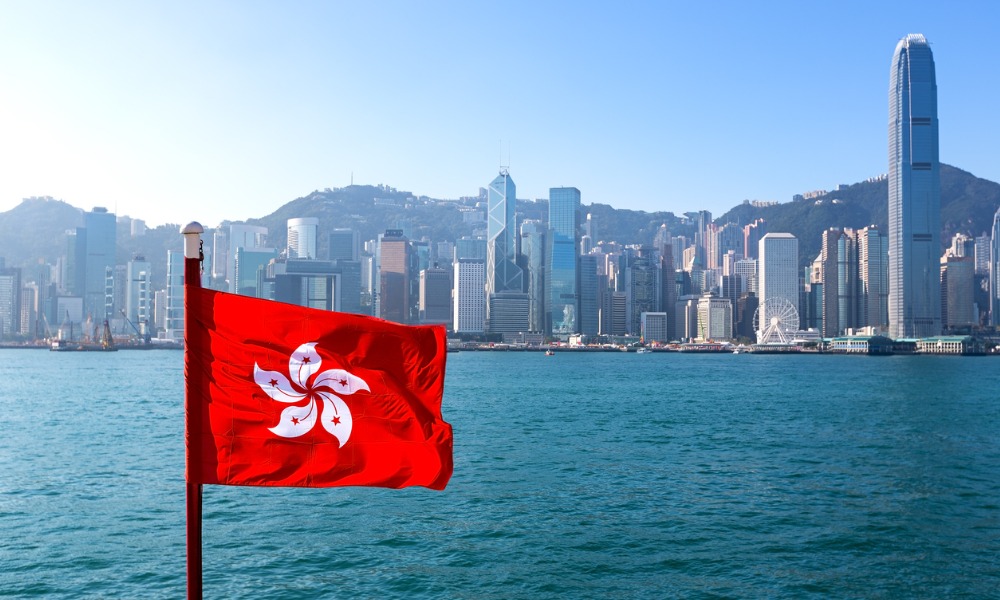
Report finds that Hong Kong had lost the race to become the preferred choice for Asia headquarters

Hong Kong's Legislative Council (LegCo) unanimously passed the Safeguarding National Security Ordinance, also known as Article 23, sparking concerns about human rights and the rule of law, similar to those raised by the national security law enacted in 2020 (the 2020 NSL).
The ordinance addresses five types of crimes: treason, insurrection and incitement to mutiny, theft of state secrets and espionage, sabotage, and external interference. Penalties for some crimes have been increased, with a greater focus on crimes involving foreign parties.
Hong Kong's Basic Law, the territory's constitution, required the government to enact domestic national security legislation. A previous attempt in 2003 failed after mass protests. Beijing cited the delay and significant pro-democracy protests as justification for the 2020 NSL.
The International Bar Association (IBA) reported that critics are concerned about the swift implementation of the ordinance. The government allowed only a four-week public consultation period, which a Hong Kong-based lawyer described as "wholly inadequate." The ordinance passed through the LegCo less than two weeks after being tabled, raising questions about the urgency claimed by the government.
In April, following a Group of 7 (G7) ministerial meeting, foreign ministers and the EU high representative issued a statement expressing concerns about the decline of pluralism and civil and political rights in Hong Kong. They argued that the new law would hinder business operations and open exchanges with the wider world, urging China to uphold its commitments under the Sino-British Joint Declaration and the Basic Law.
The Hong Kong government and Beijing's foreign ministry dismissed the G7-EU statement as "unfounded and biased," asserting that the ordinance protects rights and freedoms guaranteed by the Basic Law and will not impact normal business operations.
Winnie Tam SC, Secretary of the IBA Asia Pacific Regional Forum, stated that the 2020 NSL would not strip Hongkongers of their liberties. She compared the new law to similar national security laws worldwide.
However, a Hong Kong-based lawyer highlighted that the ordinance may impose stricter regulations than those in mature common law jurisdictions that adhere to human rights instruments like the UN's International Covenant on Civil and Political Rights (ICCPR). Concerns include the vague definitions of crimes under the ordinance, which could lead to arbitrary prosecutions.
Anne Ramberg, co-chair of the IBA’s Human Rights Institute Council, argued that the ordinance violates the Sino-British Joint Declaration by imposing itself on Hong Kong's legal system and affecting civil rights. “The vague definitions of the crimes in the new NSL allow opportunity for arbitrary and politically motivated prosecutions of any form of dissent,” Ramberg added.
Despite these concerns, the business community may not prioritize the ordinance. Ben Cooper, managing partner of Ashford Benjamin, said, “We have not heard [of] any issues from the latest update. Expats and locals have now stopped exiting Hong Kong because of the [2020 NSL], and our clients in banks and law firms don’t see it as a concern. The only issues I have come across are with non-governmental organisations that are losing US funding as the new amendment makes this more difficult.”
A Bloomberg Intelligence report published in February concluded that Hong Kong had lost the race to become the preferred choice for Asia headquarters, with companies favouring Singapore due to its better relations with the West and diversified economy. Andrew McGrath, Director of Green Light Consulting, remarked that Hong Kong's economic challenges are “part of the business cycle.”